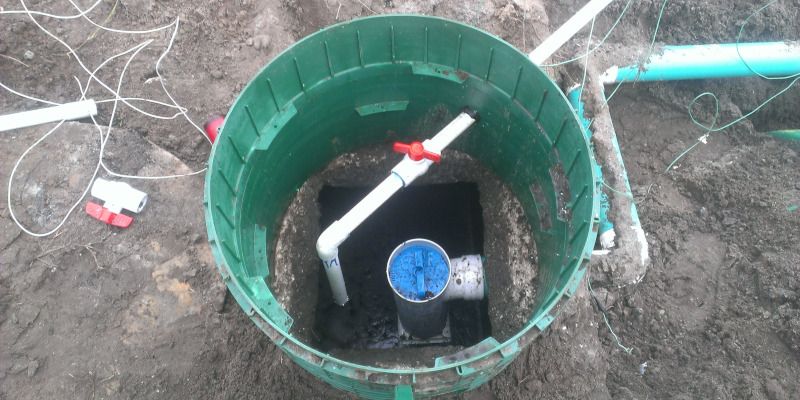Key Takeaways
- Effective septic system maintenance is critical for extending its service life.
- Professional septic tank pumping is a non-negotiable aspect of routine maintenance.
- Awareness of septic system warning signs is critical to preventing costly failures.
- Emerging technologies are revolutionizing residential septic system efficiency and ecological impact.
- Understanding and adhering to local regulations ensures system compliance and functionality.
Table of Contents
- Introduction to Septic Systems
- Regular Maintenance: Key to Longevity
- Recognizing the Signs of Septic System Failure
- Pumping Your Septic Tank: When and How Often?
- The Financial Aspect: Cost Analysis for Maintenance and Replacement
- Advancements in Septic System Technology
- Legal Requirements and Regulations
- Preparing for the Inevitable: Replacement and Upgrading
- Conclusion: A Proactive Approach to Septic System Care
Introduction to Septic Systems
The humble septic system, often overlooked, plays an indispensable role in daily household operations where municipal sewer service is unavailable. Essentially a personal waste treatment plant, the standard septic system is not complex in its structure yet ingenious in its functionality. It comprises two main elements: the septic tank, which allows for the settling and preliminary breakdown of solids, and the drain or leach field, where secondary treatment and filtration into the soil occur.
Understanding septic system care, particularly learning when and how often to employ septic pumping services, is not merely beneficial — it’s essential for system longevity. Pumping the septic tank entails removing the build-up of solids and sludge, which, if left unchecked, can clog the system and lead to malfunction or environmental contamination.
Regular Maintenance: Key to Longevity
Regarding residential septic systems, an ounce of prevention is worth a pound of cure. The Environmental Protection Agency (EPA) underscores the importance of maintaining your septic system, noting that routine maintenance is critical to preventing failures that could lead to sewage overflows and groundwater contamination, among other environmental concerns. Maintenance tasks include regular inspections by professionals, identifying leaks, and ensuring the proper function of all system components. In case of a malfunction or damage, prompt septic system repair is essential to mitigate potential environmental risks and restore proper functionality. Professional septic system repair services, can diagnose issues, perform necessary repairs, and ensure the continued efficient operation of the system. Learn more about proper care at the EPA’s guide to septic system maintenance.
Recognizing the Signs of Septic System Failure
The early detection of a septic system’s distress signals can mean the difference between an easy fix and a costly system overhaul. Symptoms of an ailing system include but are not limited to wastewater back-ups in the household, gurgling sounds from the plumbing system, and the detection of sewage aromas near the tank or drain field. Outside, pay attention to unusually wet areas or lush green growth about the leach field, as these indicate an impending or ongoing failure. Vigilance in this regard will ensure that issues are addressed before they escalate to catastrophic levels.
Pumping Your Septic Tank: When and How Often?
The question of how frequently septic tanks should be pumped varies according to several household factors, including family size, total wastewater generated, the amount of solids present in the sewage, and the size of the septic tank itself. While most septic tanks require pumping every three to five years, homes with more residents or garbage disposal may need service more often. For insights into responsible septic tank maintenance, including indicators that it’s time to pump the tank, homeowners can consult the National Association of Certified Home Inspectors’ information on septic pumping frequency.
The Financial Aspect: Cost Analysis for Maintenance and Replacement
A well-maintained septic system can serve a household for decades. Conversely, neglecting maintenance can lead to unexpected failures, imposing financial strain due to emergency repairs or premature system replacement. A financially savvy homeowner will anticipate the potential costs associated with their septic system and budget accordingly. Though it requires investment, regular maintenance preserves the system’s health and mitigates the odds of encountering exorbitant emergency costs.
Advancements in Septic System Technology
Sustainable living and technological advancement converge in the realm of modern septic systems. Permeable reactors, advanced treatment systems, and innovative compartmental tank designs are a few examples that showcase how cutting-edge engineering elevates the performance and ecological impact of residential waste management. These technologies not only enhance the decomposition of waste but also improve the subsequent water treatment, ultimately yielding a positive environmental contribution to the local ecosystem.
Legal Requirements and Regulations
Local health and environmental codes encapsulate a body of regulations that septic system owners must adhere to. Such stipulations commonly encompass requirements for regular maintenance, acceptable installation protocols, and the necessary permitting procedures. These regulations are not arbitrary barriers but safeguards designed to protect public health and the environment by ensuring that septic systems operate within safe and effective parameters.
Preparing for the Inevitable: Replacement and Upgrading
Even the best-kept septic systems will eventually end their effective lifespan. Acknowledging this inevitability and acting proactively enables homeowners to address the situation before it becomes a crisis. Assessing the current system, understanding the tell-tale signs of system failure, and exploring the latest septic system options positions you to make informed decisions about replacing or upgrading your residential wastewater treatment system.
Conclusion: A Proactive Approach to Septic System Care
Septic system education is about responding to problems as they arise and preventing them before they occur. Through informed and proactive care, homeowners can extend their septic system’s functional life, guaranteeing a clean, efficient home environment. Such vigilance ensures the well-being of not only one’s household but also the broader ecological community.

